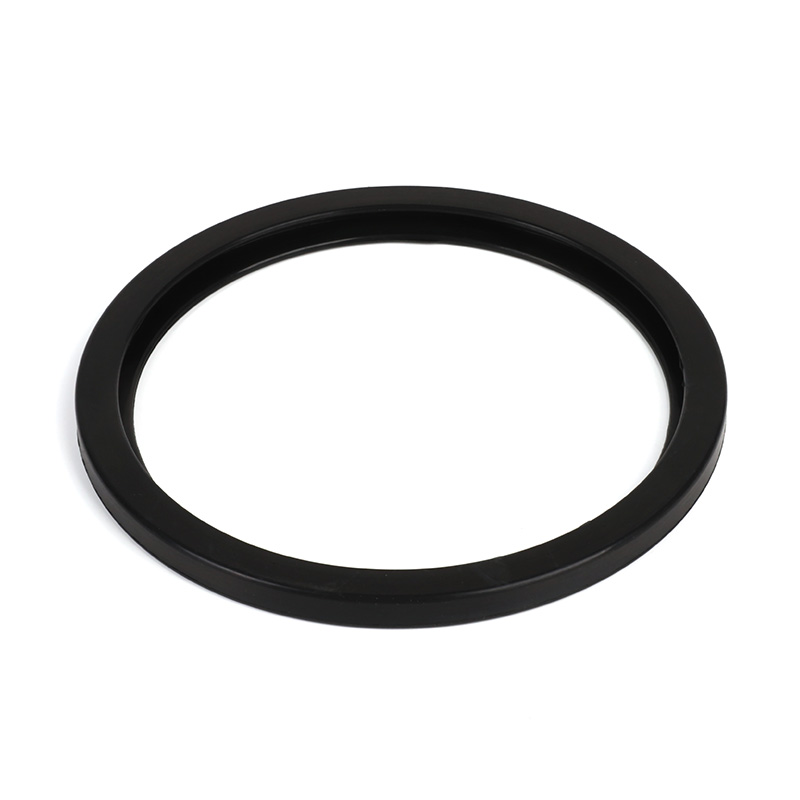+86-576-88024290
Search
01 08, 2025
Industry Updates
Your engine's lifeblood—its oil—relies on a critical yet often overlooked component: the Automobile Oil Filter Seals. These unsung heroes form the barrier preventing contaminants from bypassing the filter and clean oil from leaking out. Choosing the wrong Automobile Oil Filter Seals can to reduced filtration efficiency, oil leaks, and potentially severe engine damage. Selecting the correct ones is non-negotiable for engine health and longevity.
Understanding the Role of Automobile Oil Filter Seals
Primarily, Automobile Oil Filter Seals perform two vital functions. The main gasket creates an airtight, oil-tight seal between the oil filter housing and the engine block. The secondary seals, often O-rings or other gaskets within the filter assembly, ensure internal components fit snugly, directing oil flow correctly through the filter media. Compromised Automobile Oil Filter Seals allow unfiltered oil to circulate (known as bypassing) or cause messy, wasteful leaks. Therefore, the integrity of your Automobile Oil Filter Seals directly impacts engine protection.
Key Factors in Selecting Automobile Oil Filter Seals
Precise Fit is Paramount: This is the absolute golden rule. Automobile Oil Filter Seals are not universal. Using a seal designed for the wrong filter model or engine application guarantees failure. Always cross-reference the seal using your vehicle's Year, Make, Model, and Engine (VIN helps too) or the specific part number from your old filter or manufacturer's guide. Never guess when it comes to Automobile Oil Filter Seals.
Material Matters: The composition of Automobile Oil Filter Seals determines their resilience.
Nitrile Rubber (NBR/Buna-N): The common, cost-effective choice. Offers good resistance to engine oils and temperatures found in standard passenger vehicles. Suitable for typical operating conditions.
Silicone (VMQ): Excels in high-temperature applications. Offers greater flexibility at low temperatures but can be slightly more prone to nicks during installation. Often found in performance or heavy-duty applications.
Fluoroelastomer (FKM/Viton): The premium choice for ultimate resistance. Handles the temperatures, aggressive synthetic oils, and chemicals exceptionally well. Ideal for high-performance engines, turbocharged applications, or extended oil change intervals. Ensure compatibility with your specific oil type.
Quality Construction: Not all Automobile Oil Filter Seals are created equal. Look for seals from reputable filter manufacturers or trusted aftermarket gasket specialists. High-quality Automobile Oil Filter Seals feature:
Consistent Thickness & Shape: Ensures even compression and sealing.
Smooth, Imperfection-Free Surfaces: Prevents leaks and tearing.
Reinforcement (Sometimes): Some seals may have fabric or metal inserts for added durability under high pressure.

Resistance is Key: The ideal Automobile Oil Filter Seals must withstand:
High Temperatures: Engine compartments get ly hot.
Engine Oil (Conventional & Synthetic): They must not swell, shrink, crack, or degrade when immersed in oil.
Pressure: Engine oil systems operate under significant pressure.
Aging: They need to maintain integrity over the entire oil change interval.
Installation: The Final Crucial Step
Even the Automobile Oil Filter Seals can fail if installed incorrectly.
Clean Surfaces: Thoroughly clean the engine block sealing surface and the filter housing mating surface. Any old gasket material or debris compromises the new seal.
Light Lubrication: Applying a thin film of clean engine oil to the new Automobile Oil Filter Seals (especially the main gasket) before installation helps it seat properly, prevents binding or tearing during tightening, and initiates the seal.
Correct Tightening: Follow the filter manufacturer's torque specifications precisely. Overtightening crushes and deforms the Automobile Oil Filter Seals, to failure. Undertightening causes leaks. If no spec is given, hand-tighten the filter until the gasket contacts the engine block, then turn it an additional 3/4 to 1 full turn as a general rule (always verify with the filter instructions).
Consequences of Ignoring Automobile Oil Filter Seals
Neglecting the importance of proper Automobile Oil Filter Seals has direct consequences. Leaks to low oil levels, risking catastrophic engine failure. Bypassing allows abrasive contaminants into engine bearings and other critical components, accelerating wear and reducing engine life significantly. Investing a little time and care in selecting the right Automobile Oil Filter Seals is cheap insurance against costly repairs.
Don't let these small components become the weak link in your engine's protection system. By prioritizing the precise fit, understanding material properties, insisting on quality, and practicing meticulous installation, you ensure your Automobile Oil Filter Seals perform their vital role flawlessly. Consult your owner's manual, reputable parts suppliers, or trusted mechanics to identify the exact Automobile Oil Filter Seals engineered for your vehicle. Making the right choice safeguards your engine's performance and longevity, one oil change at a time. Remember, the integrity of the entire filtration process hinges on these critical Automobile Oil Filter Seals.